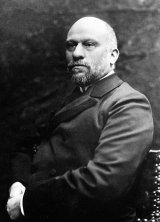Fear Page #3
THE learned and eloquent Professor of Physiology at Turin has given us in the book which he has entitled “Fear,” an analysis of this mental condition and its accompanying physical states, which, marked as it is by scientific accuracy and couched in charming and even in poetical diction, will take high rank as a popular exposition of our knowledge of the expression of one of the most interesting of the emotions of both men and animals.
Genre: Health
Genre: Health
- Year:
- 1896
- 974 Views
No one before Descartes had had so simple a conception of the mechanism by which the involuntary movements accompanying the emotions are produced, and he it is who laid the foundations of the physiological study of the mind. Two centuries and a half have already passed, and his work still remains a monument worthy of all admiration. Science has advanced so greatly that perhaps no one now who wished to learn the elements of physiology would study his treatise on man, and yet none who know the history of science but are moved by those marvellous pages out of which breathes that spirit of innovation which has fertilised the science of centuries. Malebranche relates that when he first took up the treatise--'L’homme et la formation du fœtus,’ by Descartes--the new ideas it stirred up within him gave him a pleasure so intense, and so filled him with admiration, that his heart palpitated and he was obliged to pause from time to time. [1] Œuvres de Descartes, Les passions de l’âme, xxxvi. Other two no less celebrated names must also be mentioned here, on account of the strictly scientific character they have given to the study of the emotions. These are Herbert Spencer and Charles Darwin. Next to these stands Paolo Mantegazza, with his celebrated researches on pain and his book on physiognomy and mimicry, dedicated to 'Charles Darwin, who, by his immortal work on the expression of the emotions, opened up a limitless horizon to the science of the future.’ The homage of the illustrious Italian physiologist is worthy of the great English master and philosopher. Darwin was a man of genius and at the same time one of the greatest masters of the popular style of authorship. His force lies in the caution with which he made statements and drew conclusions, thus avoiding all absolute formulæ, and this will always make him an incomparable model. Dogmatism, that worm which gnaws and sterilises mediocre minds, which corrupts the rationality of the many--dogmatism, that plague of science, had no hold on him, Darwin knew it not. He candidly shows the public the gaps in science, criticises himself unmercifully, and does not hesitate to point out the defects in doctrines he himself propounded. In reading his books one is inclined to think that he was continually haunted by the fear of being misunderstood by readers insufficiently educated for the comprehension of deeper scientific questions. He was so careful, so temperate in his assertions, so cautious in his inductions, that in his book, 'The Expression of the Emotions,’ which, in my opinion, is one of the less excellent of his works, he leaves not one point on which one can conscientiously contradict him, by taxing him with an error.
Translation
Translate and read this book in other languages:
Select another language:
- - Select -
- 简体中文 (Chinese - Simplified)
- 繁體中文 (Chinese - Traditional)
- Español (Spanish)
- Esperanto (Esperanto)
- 日本語 (Japanese)
- Português (Portuguese)
- Deutsch (German)
- العربية (Arabic)
- Français (French)
- Русский (Russian)
- ಕನ್ನಡ (Kannada)
- 한국어 (Korean)
- עברית (Hebrew)
- Gaeilge (Irish)
- Українська (Ukrainian)
- اردو (Urdu)
- Magyar (Hungarian)
- मानक हिन्दी (Hindi)
- Indonesia (Indonesian)
- Italiano (Italian)
- தமிழ் (Tamil)
- Türkçe (Turkish)
- తెలుగు (Telugu)
- ภาษาไทย (Thai)
- Tiếng Việt (Vietnamese)
- Čeština (Czech)
- Polski (Polish)
- Bahasa Indonesia (Indonesian)
- Românește (Romanian)
- Nederlands (Dutch)
- Ελληνικά (Greek)
- Latinum (Latin)
- Svenska (Swedish)
- Dansk (Danish)
- Suomi (Finnish)
- فارسی (Persian)
- ייִדיש (Yiddish)
- հայերեն (Armenian)
- Norsk (Norwegian)
- English (English)
Citation
Use the citation below to add this book to your bibliography:
Style:MLAChicagoAPA
"Fear Books." Literature.com. STANDS4 LLC, 2024. Web. 28 Apr. 2024. <https://www.literature.com/book/fear_137>.




Discuss this Fear book with the community:
Report Comment
We're doing our best to make sure our content is useful, accurate and safe.
If by any chance you spot an inappropriate comment while navigating through our website please use this form to let us know, and we'll take care of it shortly.
Attachment
You need to be logged in to favorite.
Log In